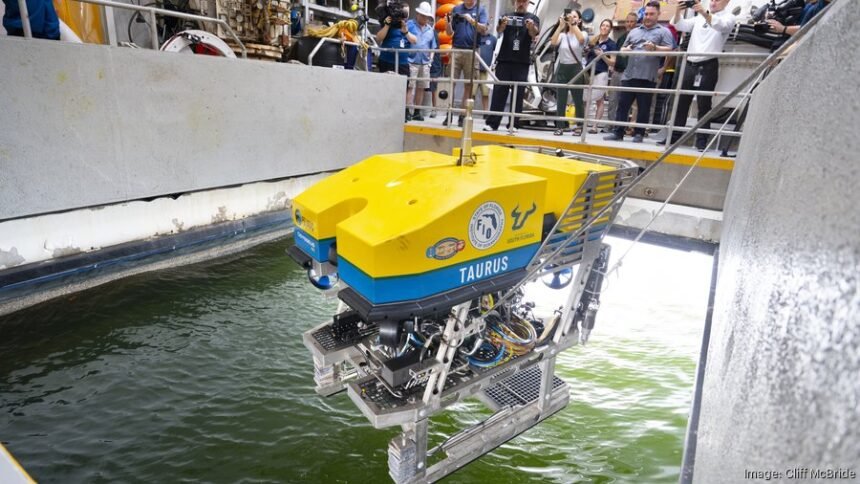In an exciting development for marine research, the University of South Florida (USF) and the Florida Institute of Oceanography (FIO) have introduced a state-of-the-art remotely operated vehicle (ROV). This advanced piece of technology is set to revolutionize the way scientists explore and study the ocean’s depths.
Advancing Marine Research
The new ROV is equipped with cutting-edge technology designed to withstand the harsh conditions of deep-sea environments. It features high-definition cameras, advanced sonar systems, and robotic arms capable of collecting samples and performing intricate tasks underwater. These capabilities will allow researchers to gather detailed data and conduct experiments that were previously impossible or too dangerous to perform.
Enhancing Exploration and Discovery
One of the key benefits of the new ROV is its ability to reach depths and areas that are inaccessible to human divers. This opens up new possibilities for exploring uncharted regions of the ocean, discovering new species, and understanding complex underwater ecosystems. The high-definition cameras will provide stunning visuals of the ocean floor, giving scientists and the public alike a glimpse into this mysterious world.
Collaborative Effort
The development of the ROV is the result of a collaborative effort between USF and FIO, combining their expertise in marine science, engineering, and technology. This partnership highlights the importance of interdisciplinary collaboration in advancing scientific research and technological innovation.
Educational Opportunities
In addition to its research capabilities, the ROV will also serve as an educational tool. Students at USF and other institutions will have the opportunity to gain hands-on experience with the vehicle, learning about marine science, robotics, and the technology used in modern oceanography. This practical experience will be invaluable for the next generation of marine scientists and engineers.
Environmental Impact
The ROV will play a crucial role in monitoring and protecting marine environments. It will enable scientists to study the impacts of climate change, pollution, and other human activities on ocean ecosystems. By providing accurate and comprehensive data, the ROV will support efforts to develop effective conservation strategies and mitigate the negative effects of these activities.
Looking Ahead
As the new ROV begins its missions, the possibilities for discovery and innovation are vast. The data and insights gained from its explorations will contribute to a greater understanding of the ocean, informing policy decisions and conservation efforts. This technological advancement marks a significant step forward in marine research, with the potential to unlock the ocean’s secrets and preserve its health for future generations.


Leave a Reply